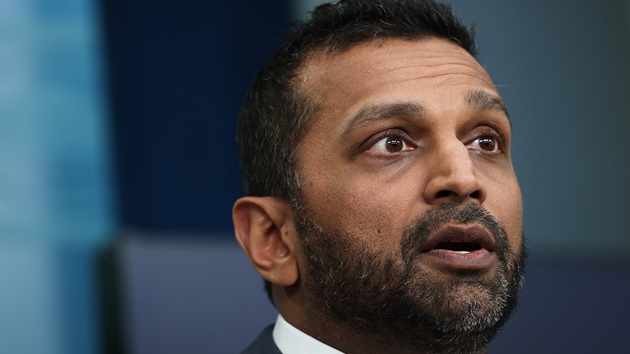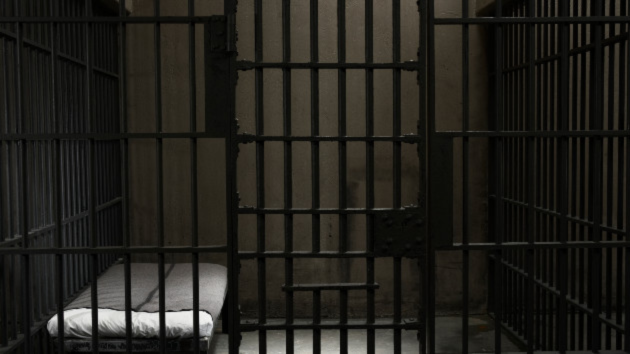One man’s escape from Haiti required help from his schoolteacher son
Written by ABC Audio ALL RIGHTS RESERVED on April 17, 2024

(NEW YORK) — All Frantzy Saintelus wanted was to visit the country where he was born, and that he has kept in his heart for more than 40 years.
But once he got there, he ended up risking his life trying to escape.
Saintelus, 56, was born in Haiti but moved when he was 14 to the United States, where he rejoined his mother, who had already settled there. Despite raising his family in New Hampshire, where he works as a truck driver, he always considered the Caribbean country he left as a child his true home.
“I’ve been wanting to go back home because I was missing it,” he said.
So, in February, Saintelus returned to Haiti, where many of his extended family still live and where he owns rental property and some vehicles. But right away, he knew something was very wrong.
Starting in late February, criminal gangs had taken over the capital of Port-au-Prince. Through large-scale attacks, they burned police stations, took control of the city’s international airport and seaport, disrupted the country’s supply chain of food and humanitarian aid, and freed about 4,000 inmates from the country’s two biggest prisons.
The United Nations reports that more than 1,550 people were killed across Haiti and more than 820 injured between early January and March 22.
“You couldn’t buy anything because nothing was moving. The country was shut down,” Saintelus said. “And then they start shooting everywhere.”
He and some cousins tried to travel, but it was immediately clear that the situation had become dangerous. “You walk around see people with guns everywhere. It’s like a cowboy place,” he said.
Back in Virginia, Alex Saintelus, Frantzy’s eldest son, watched the chaos unfolding on the island and realized his father “might die.” He started communicating with his father via WhatsApp, the encrypted text-message application, but because internet service was sporadic, hours and sometimes days would go by without hearing from him.
“I was very afraid,” Alex, 31, said.
So Alex took two days off from his job as a middle-school history and civics teacher and started working the phones to get someone to listen. “I basically took the knowledge that I had as a teacher about how our government has constituents that they are supposed to represent and take care of and thought, ‘let’s see if it really works’,” he said.
Through hours of calling, Alex ended up getting local media coverage – but more importantly, he connected with the offices of U.S. Senators Maggie Hassan and Jeanne Shaheen of New Hampshire, as well as the Bureau of Consular Affairs within the U.S. State Department, which started to update Alex about efforts underway to evacuate his father, and other American citizens, by helicopter from the U.S. Embassy just outside Port-au-Prince.
Meanwhile, Frantzy Saintelus was trapped inside his family’s home, 15 miles southwest of Port-au-Prince, afraid to go outside. Every five or six blocks were men with large guns. He had learned that anywhere he traveled, he was at risk of being caught in crossfire.
“We can hear the shootings. You just didn’t know where the shootings were coming from. The further I got, the worse it got,” he said.
Finally, on March 25, the Bureau of Consular Affairs told Alex that his father was on a list of people to board a helicopter at the U.S. Embassy the next morning at 7 a.m. Normally, the early-morning ride would take 45 minutes, but Frantzy said it took much longer because, every 20 minutes, gangs stopped the public bus on which he was traveling on to demand bribes from the driver. Finally, when the bus could go no further, Frantzy convinced a motorcyclist to accept money to take him on the final leg of his journey.
When he got to the embassy, Frantzy still wasn’t safe. He arrived early and so had to wait outside, which once again made him a potential target.
“There could be any shooting anytime. I was worried more at that time. You got no time to be scared anymore. Whatever happens, is gonna happen,” he said.
Meanwhile, in Virginia, Alex had gone to bed the previous night feeling helpless.
“There was absolutely nothing I could do,” he said. “So, I just made a prayer. And I said, ‘I’m going to pray that my dad’s going to get into the embassy, and when I wake up in the morning, I’m going to see the text message that says he’s there.’”
Alex awoke two minutes before 8 a.m. the next morning to his father’s text saying just that: That he was safe within the embassy compound.
While being airlifted from Haiti, Frantzy said he felt relief that he was safe, but at the same time watched with profound sadness as the island grew smaller in the distance.
“This is the country I grew up in. This is a place I love,” he said. While he said he hopes to one day return, he isn’t optimistic because conditions there are getting “worse and worse.”
As for Alex, he said he will likely draw from the experience in his classroom next fall.
“Civics can get very messy because there are so many emotions attached to it, especially when you watch the news nowadays. The perception is the government does horrible things and hurts people. But that isn’t the case,” he said.
“I could never get my dad out of that situation. I can’t fight the gangs. I can’t fly a helicopter. But there are people in our government who can. And if you know the system enough to know who to call and who to talk to, and you can use the system correctly, it has the power to create miracles,” he noted.
“At the end of the day,” Alex said, “the government is just made up of people, and if you find good people, then a lot can be achieved.”
Copyright © 2024, ABC Audio. All rights reserved.
 KVSP
KVSP 




